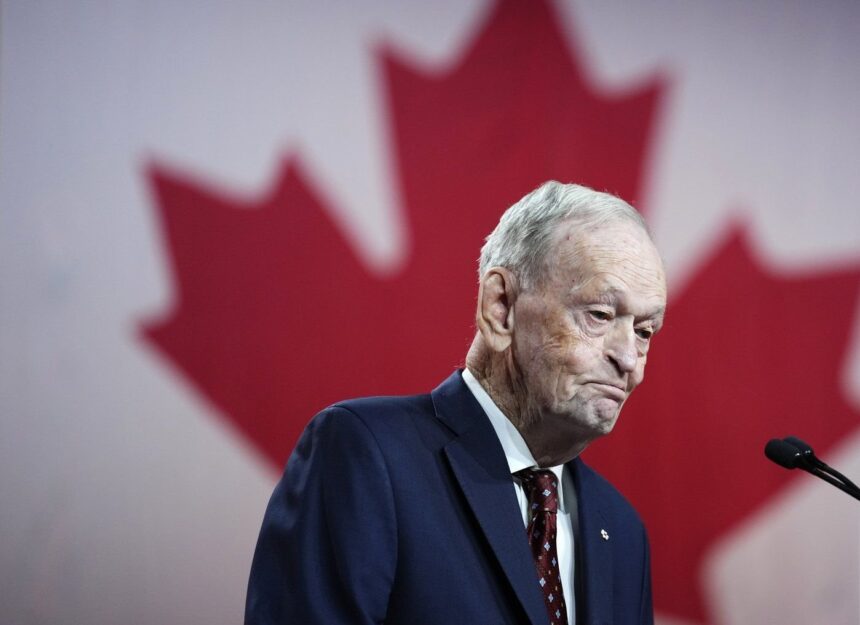Article – As Canada prepares to host the G7 Summit next year, an intriguing political sideshow is taking shape in Alberta. Premier Danielle Smith, alongside several former prime ministers, will address a conference scheduled just days before world leaders gather for the high-profile international meeting.
The conference, titled “Canada on the World Stage,” represents a strategic platform for Smith, who has often positioned Alberta’s interests against federal policies. Political observers note this creates an unusual dynamic where provincial leadership seeks to influence international perceptions ahead of a major diplomatic event.
“This is unprecedented in recent Canadian political history,” says Dr. Amrita Kaur, professor of international relations at the University of Calgary. “We’re seeing a provincial premier essentially creating a parallel forum that could potentially undermine or at least complicate the federal government’s messaging at the G7.”
The gathering will feature Stephen Harper, Brian Mulroney, and Kim Campbell, creating what some describe as a shadow diplomatic effort. The timing—just three days before world leaders arrive in Kananaskis Country—has raised eyebrows in Ottawa.
I spoke with several attendees at a recent Edmonton town hall where many expressed mixed feelings about the conference. James Woodward, a local business owner, captured the sentiment: “I’m proud Alberta’s getting attention, but shouldn’t we present a unified front to the world instead of airing our internal disagreements?”
The federal government has maintained a diplomatic stance. Foreign Affairs Minister Melanie Joly told reporters last week, “Canada speaks with one voice internationally, regardless of domestic political differences.” Her careful phrasing barely concealed the tension between federal and provincial positioning ahead of this crucial diplomatic moment.
What makes this situation particularly noteworthy is how it reflects Alberta’s ongoing efforts to establish direct international relationships. Under Smith’s leadership, the province has opened independent trade offices in key markets and pushed for greater autonomy in areas traditionally managed by federal authorities.
Recent polling from Abacus Data shows Albertans themselves are divided on the issue. Approximately 56% support Smith’s more assertive international presence, while 41% worry about undermining Canada’s global reputation. The remaining respondents were undecided.
The conference agenda, released yesterday, reveals a focus on energy policy, economic sovereignty, and what organizers describe as “alternative perspectives on climate action”—topics that have frequently put Alberta at odds with federal initiatives.
Dr. Thomas Reid, director of the Centre for Policy Studies at Mount Royal University, believes this represents a new phase in provincial-federal relations. “Throughout Canadian history, provinces have occasionally voiced distinct positions, but this level of organized international counterpoint is something we haven’t seen before,” he explained during our conversation at his Calgary office.
The G7 Summit itself will focus on climate change, global security, and economic recovery—all areas where Alberta’s perspectives sometimes diverge from federal policies. Climate commitments will likely dominate discussions, with Canada expected to showcase its emissions reduction plan.
Budget documents obtained through freedom of information requests show Alberta has allocated $3.8 million for the conference and related activities—a significant investment for what critics call a political messaging exercise.
During a recent Question Period, Prime Minister Justin Trudeau emphasized collaboration: “Canadians expect all levels of government to work together on the world stage. Our international partners don’t benefit from mixed messages.”
Behind the scenes, diplomatic staff are scrambling to ensure international delegations understand the nuanced relationship between provincial and federal jurisdictions in Canada. One senior official, speaking on condition of anonymity, admitted: “We’re spending more time explaining our federation to G7 partners than discussing substantive policy positions.”
The tension highlights Canada’s complex internal dynamics at a time when the country seeks to project unified leadership. Alberta’s increasingly independent international posture represents what political scientist Dr. Marjorie Beauchamp calls “provincial diplomacy”—a growing trend where resource-rich provinces establish direct relationships with international partners.
For everyday Canadians watching this unfold, the situation underscores the evolving nature of our federation. As Lethbridge resident Sarah Clearwater told me at a community forum last week, “I never thought I’d see provincial politics playing out on the international stage like this. It feels like we’re watching two different Canadas competing for attention.”
As the G7 approaches, the question remains whether these parallel forums will strengthen or complicate Canada’s voice in global affairs. What’s certain is that Canada’s federal system is being tested in new ways on the international stage—with Alberta leading what might become a more assertive era of provincial international relations.






